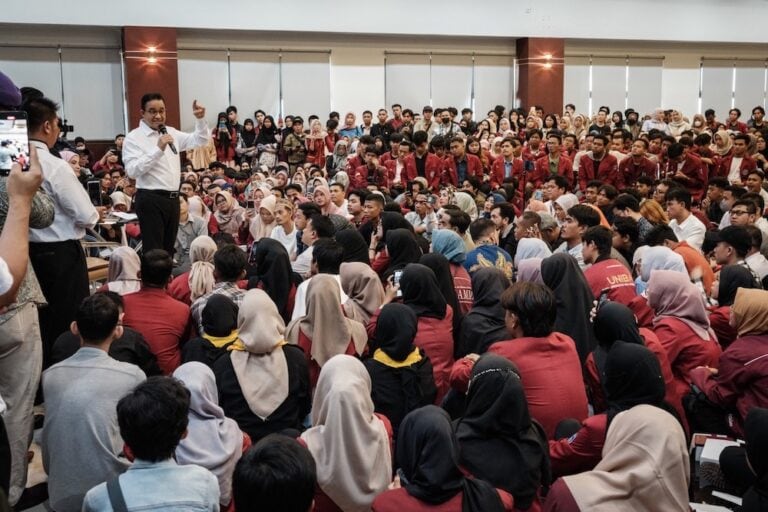A number of Hong Kong reporters were barred from the APEC Summit in Indonesia after critically questioning President Aquino of the Philippines.
Events in Bali, Indonesia where the APEC (Asia-Pacific Economic Cooperation) ministerial conference was held from 5-7 October 2013, took a shocking and frightening turn, with Hong Kong reporters being treated as a security threat.
On 7 October, the Hong Kong Journalists Association expressed shock at seeing the journalists’ questions, previously tossed at President Benigno Aquino of the Philippines, being placed on the same level as explosives and other fatal vice by both the Indonesian and Filipino authorities.
Not only were the reporters barred from the APEC Summit from Sunday 6 October 2013 onwards, they were stopped from re-entering their hotels and hounded every minute by the Indonesian officials. According to the Indonesian authorities, they put the journalists on a surveillance list. No explanation was given.
This development borders on the absolutely ludicrous and the so-called security threat concern is totally unacceptable.
First, the journalists did not enter any restricted area while they were questioning Aquino. They were questioning the President on the Manila hostage-taking incident which resulted in the death of eight Hong Kong residents.
More embarrassing or sensitive matters have been raised by journalists at international gatherings like this APEC conference. This is fully in keeping with press freedom in democratic countries around the world.
Second, not only were the journalists questioning Aquino disqualified from the Summit news coverage, but also their colleagues working on the Summit. The so-called security concern can hardly justify this umbrella ban.
Third, by limiting the journalists’ personal freedom outside the Summit, Indonesian authorities went way beyond security concerns within the Summit.
The move by the Philippines and Indonesian Authorities is nothing but a mean to gag foreign journalists from asking tough questions that are of public interest.
This is totally outrageous, unacceptable and must be quickly nipped in the bud. Not just by Hong Kong journalists alone but by journalists in the Philippines, Indonesia and all over the world; and more importantly, by governments involved in APEC.
To underscore its concern over this matter, HKJA planned to hold a demonstration at both the Consulate General of the Republic of Indonesia and the Consulate General of the Philippines on the afternoon of 8 October at the Bali conference.
HKJA demanded that the monitoring of reporters be stopped immediately and the reporters be allowed to resume their coverage immediately. Letters were also sent to the APEC Secretariat to express the organisation’s discontent and concern.
The Association is also disappointed with the lack of action from the Hong Kong government in protecting the right of the Hong Kong press in the Summit.
As of 7 October, the Chief Executive C Y Leung had expressed no concern over the mistreatment of the Hong Kong journalists. Neither had the Hong Kong authorities managed to restore HKJA’s access to the Summit or do anything about the restriction on the personal freedom of its citizens there.
The Association has written to Mr Leung to ask him to take up this matter with the relevant authorities in Indonesia.


